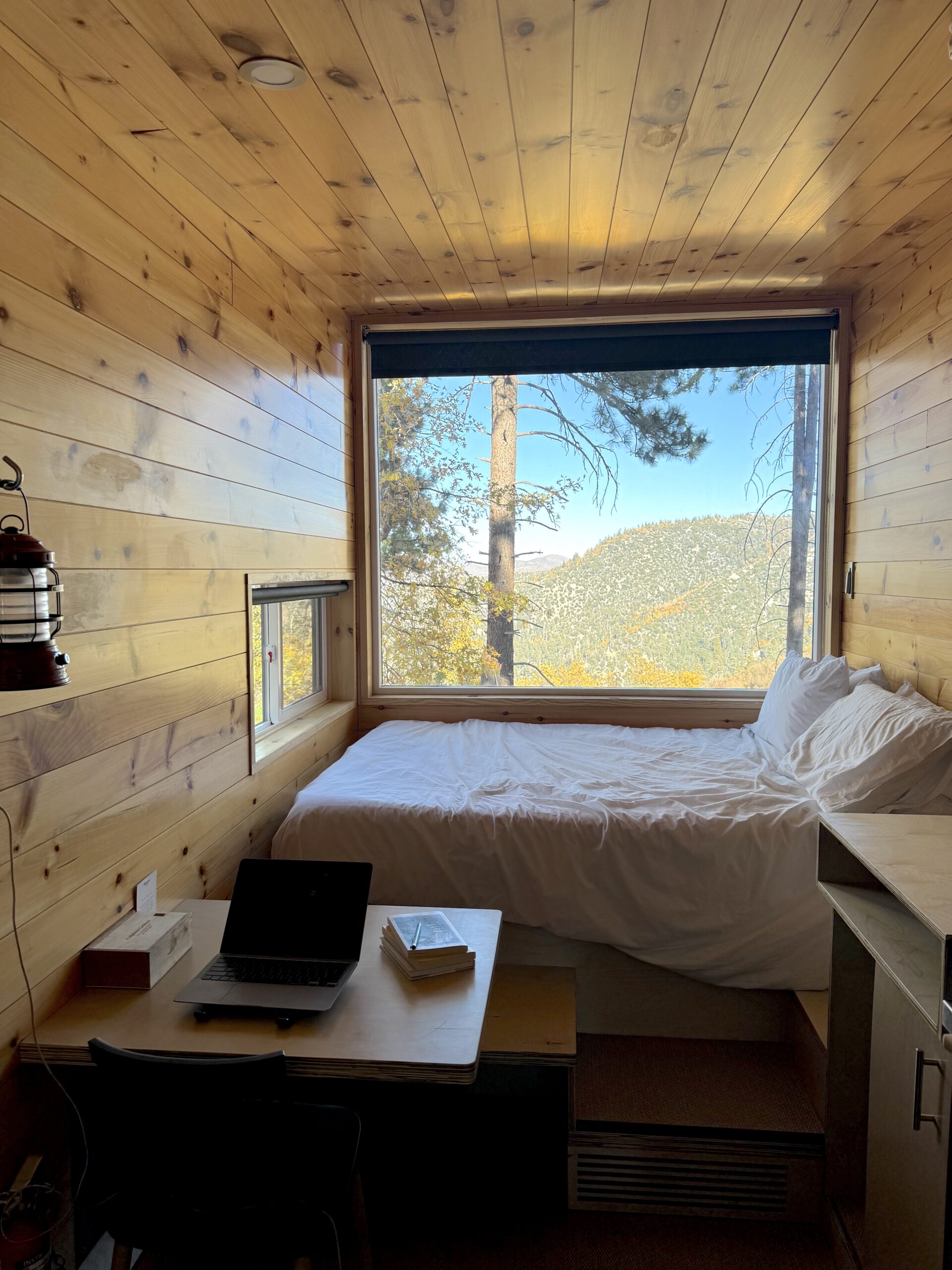
How I Learned To Trust My Gut And Distinguish Instinct From Impulse
My mother always called it discernment. Not just intuition. Not a fleeting hunch. But something deeper — quieter. A felt sense that settled in the body like truth.
Even as a child, I couldn’t lie — not well, anyway. My cheeks would flush, my throat would tighten, and some invisible force would well up inside me, resisting the distortion of what was real. If I managed to go through with it, I’d usually come clean within the hour. Not out of guilt, exactly, but because something felt off and misaligned.
“My gut has always had a kind of built-in compass.”
My gut has always had a kind of built-in compass. My parents caught on early. “You just know things,” my mom would say — sometimes amused, sometimes exasperated. “It’s discernment.”
It made rebellion difficult. Impossible, really. While friends learned how to rationalize their way through bad relationships or questionable choices, I never could. I’d try to silence the unease, talk myself into staying, explain away the quiet discomfort — but the knowing always rose up, gently and insistently. Sometimes with tears. Sometimes with a deep exhale.
It wasn’t always dramatic (though at fifteen, it certainly felt that way). But as I got older, that inner voice softened into something steadier — a quiet resolve. I couldn’t lie to myself. I couldn’t unknow what I knew.
“As I got older, that inner voice softened into something steadier — a quiet resolve. I couldn’t lie to myself. I couldn’t unknow what I knew.”
And that sensitivity became both compass and burden. Because sometimes, we don’t want to know what we know.
In my twenties, the voice got louder. By then, I was married. We had a house and a yard and sweet friends nearby. Dinner parties and garden beds. The kind of life that photographs well. The kind of life we’re taught to want.
But beneath it, I was restless. Our marriage was wearing thin at the seams. My career was hollow. When I looked in the mirror, I saw a version of myself I didn’t quite recognize — someone trying so hard to be okay.
I remember standing outside a restaurant in our college town, the autumn light catching in the leaves. People moved past us, laughing, living. And I felt a swell in my chest — fear and clarity wrapped together.
I had to speak the thing I’d been burying: If we stay here and root ourselves any deeper into this life, I will lose myself. And we will lose each other.
“I had to speak the thing I’d been burying: If we stay here and root ourselves any deeper into this life, I will lose myself. And we will lose each other.”
I said it aloud to my husband, who looked stunned and then not stunned at all — like some part of him had known, too. That was the first time I chose my gut over everything else. Over logic. Over appearances. Over the chorus of voices saying, But you have everything you need.
So we sold the house. Packed our lives into boxes. Bought one-way tickets and wandered. We paused. We healed. We relearned how to be honest — with ourselves and with each other.
It wasn’t easy. But it was true. And it carried us into grad school, new cities, new versions of ourselves. Years spent growing together rather than apart. That’s how I’ve come to understand the difference between impulse and instinct.
Impulse is loud. Frantic. It grabs at the easy way out. Instinct is steady. It waits. It whispers this way, even when this way feels terrifying.
“Impulse is loud. Frantic. It grabs at the easy way out. Instinct is steady. It waits. It whispers this way, even when this way feels terrifying.”
Last year, that same voice came back — this time more firmly — when we were navigating infertility and IVF. Our first round failed. Nine eggs, no embryos. The doctor said, “It happens. Try again.” But something in me didn’t settle. I didn’t want to just try again. I wanted to understand what went wrong. I needed to shift course, even if I couldn’t explain why.
That’s when a new doctor started showing up in my sphere — subtly, almost like a breadcrumb trail. Friends mentioned her name. She popped up on Instagram. My own late-night research led me to her, again and again.
Then, she transferred to our clinic. I booked the consult before I had time to second-guess. From our very first conversation, I felt it: the click. That deep-down yes.
She saw us clearly. She gave language to what I hadn’t known how to ask. She changed our protocol, slowed our timeline, and shifted our treatment in ways that made sense.
She helped us get two healthy embryos. One of them is our growing daughter, who I’m thirty weeks pregnant with now.
“Instinct doesn’t always come with proof or guarantees, sometimes, it’s just a murmur. A flicker of clarity. A breath that says, Not this or try here instead.“
I don’t know what would’ve happened if I hadn’t followed that pull. Maybe the results would’ve been the same. Maybe not. But I do know it mattered — to feel aligned in that process. I felt like I was honoring the knowledge, not overriding it.
Because instinct doesn’t always come with proof or guarantees, sometimes, it’s just a murmur. A flicker of clarity. A breath that says, Not this or try here instead.
And I want to be honest: There have been times I didn’t listen. Times I stayed too long, said yes too quickly, and let fear or convenience or timing drown out the voice.
I don’t regret those seasons, either. That’s part of it. Sometimes, we’re not ready to move. Sometimes, staying feels safer than leaping. Sometimes, we must live through the silence before we can hear again.
But what I’ve learned is this: The voice doesn’t go away. It stays — soft and steady. It waits to be welcomed. And we can make it easier to hear by creating space for stillness.
“The voice doesn’t go away. It stays — soft and steady. It waits to be welcomed.”
For me, that looks like long walks with my thoughts. Creating space in my home so it doesn’t feel so crowded with “stuff” and noise. It looks like reading books that challenge me and asking questions of myself without demanding quick answers. Like, does this feel like you? Does this feel like peace? Does this align with all of your other instincts and decisions?
Mostly though, it’s remembering that this knowing — this gut feeling, this discernment — it isn’t something to earn or perfect. Because it’s already there; it lives in my body. It always has.
It sounds like my mother’s voice. It sounds like my voice. And it feels like coming home.
Kayti Christian is a Senior Content Strategist at The Good Trade. With an MFA in Nonfiction Creative Writing, her work has appeared in TODAY, Shondaland, and The New York Times. Since 2017, Kayti has been uncovering and reviewing the best sustainable home brands and wellness products. Her personal journey through four years of fertility treatments has inspired her to write extensively about women’s healthcare and reproductive access. Beyond her work at The Good Trade, Kayti is the creator of Feelings Not Aside, a Substack newsletter with 6,000 subscribers, and the cohost of the FriedEggs Podcast, which delves into IVF and infertility.




